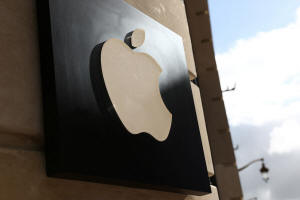Redesigned Apple Watches not subject to import ban, US Customs says
 Send a link to a friend
Send a link to a friend
 [January 16, 2024] By
Blake Brittain [January 16, 2024] By
Blake Brittain
(Reuters) -A U.S. law enforcement agency has determined that Apple can
use a redesign to bypass an import ban on newer Apple Watch models
stemming from its patent infringement dispute with Masimo, the
medical-monitoring technology company said in a court filing on Monday.
The import ban, issued by the U.S. International Trade Commission (ITC),
applies to Apple's current Series 9 and Ultra 2 watches and initially
went into effect on Dec. 26. Apple convinced the U.S. Court of Appeals
for the Federal Circuit to pause the ban the next day, and has since
resumed selling the watches as it contests the import ruling.
Apple had said that a proposed redesign would allow it to circumvent
findings that the watches infringe Masimo's blood-oxygen reading pulse
oximetry patents. Apple has not publicly described the redesign, which
could involve an update to the watches' software.
According to Masimo's filing on Monday with the Federal Circuit, Apple
told the U.S. Customs and Border Protection agency that its redesigned
watches "definitively do not contain pulse oximetry functionality."
Apple's filings with U.S. Customs and the agency's decision, issued
Friday, have not been released publicly.
"Apple's claim that its redesigned watch does not contain pulse oximetry
is a positive step toward accountability," a Masimo spokesperson said on
Monday.

Apple said on Monday that Series 9 and Ultra 2 watches with blood-oxygen
reading capabilities are still available.
Irvine, California-based Masimo has accused Apple of hiring away its
employees and stealing its pulse oximetry technology to use in Apple
Watches after discussing a potential collaboration.
Apple has included a pulse oximeter feature in smartwatches since its
Series 6 Apple Watch in 2020.
Masimo sued Apple in California that year, alleging that Apple stole
trade secrets related to technology for reading blood-oxygen levels and
infringed Masimo patents.
[to top of second column] |

An Apple logo is pictured outside an Apple store in Lille, France,
September 13, 2023. REUTERS/Stephanie Lecocq

Apple countersued Masimo for patent infringement, calling Masimo's
legal actions a "maneuver to clear a path" for a competing
smartwatch. Masimo released its W1 watch, which tracks blood-oxygen
levels and other health indicators, in 2022.
Masimo asked the ITC in 2021 to bar Apple's imports and sales of
Apple Watches that allegedly infringed its patents. The ITC ruled
for Masimo last year and the ban went into effect in December. Apple
briefly stopped sales of its latest Series 9 and Ultra 2 watches in
the United States before Christmas due to the ITC decision, though
they remained available from other U.S. retailers including Amazon,
Best Buy, Costco and Walmart. The tech giant resumed selling the
watches Dec. 27 after the Federal Circuit said it would pause the
ban while it considers whether Apple's appeal should put the ITC's
decision on hold.
Apple said on Monday that the appeal would likely take at least a
year, and that it expects a decision on its request to keep the ban
paused during that time as early as Tuesday.
The Federal Circuit is still considering whether to continue the
pause or reinstate the ban, which would apply to Series 9 and Ultra
2 Apple Watches with pulse oximetry technology that do not have the
redesign.
Apple has argued that it is likely to win the appeal and that
allowing the ban to stay in effect would cause significant harm to
the company, its suppliers and the public.
Masimo has said that maintaining the pause would hurt its business
and reputation and "demoralize" its scientists and engineers. It
also said in its Monday filing that the Customs decision undermines
Apple's argument that reinstating the ban would cause the tech giant
irreparable harm.
(Reporting by Blake Brittain in WashingtonEditing by David Bario,
Alexia Garamfalvi and Matthew Lewis)
[© 2024 Thomson Reuters. All rights
reserved.]
This material may not be published,
broadcast, rewritten or redistributed.
Thompson Reuters is solely responsible for this content. |